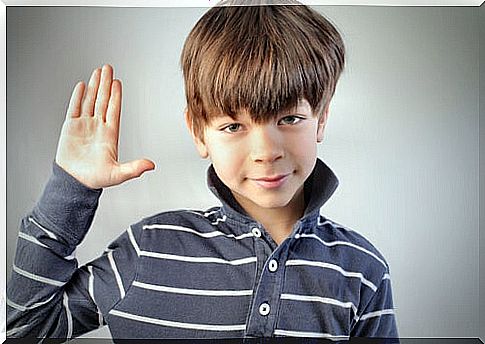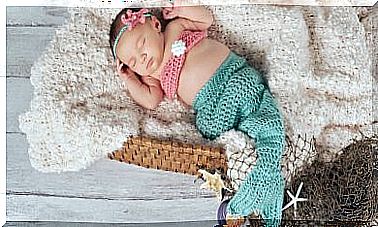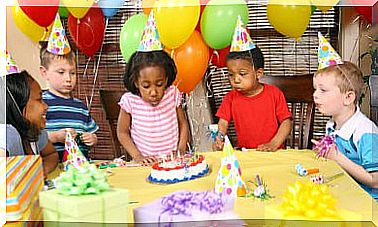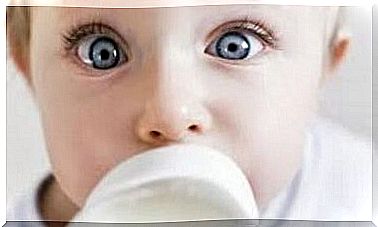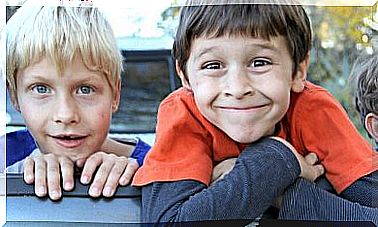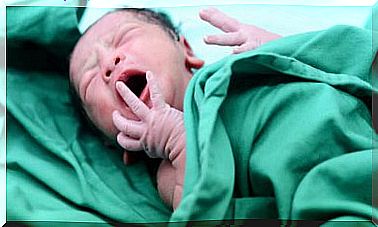How Do I Know If My Son Tells Lies?

Why does a child lie is perhaps one of the questions that parents ask ourselves the most. No matter how grown-up we are, we are not infallible, nor do we have a polygraph at home to find out the truth; and with the passage of age it is much more difficult to detect deception. How do I know if my child tells lies?
Two things happen with children’s lies: the first is that children gain wisdom about what to say to their parents so as not to alarm them. The second is that most parents have a biased view of our little ones.
Now, there are some tricks that could help us unveil what our children invent to get away with it. Everything will depend on our observation, intuition and a little logic.
The physical signs of lying
Telling a lie involves psychophysiological processes and mental dexterity. Adults get used to its use and can control their gestures a little better so as not to be discovered. But in children this self-control is more expensive.
In fact, when a child lies they are prone to sweating, shaking and confusing some words. In these cases, we get hasty responses, because children try to respond quickly and think at the same time.
We can also notice gestural changes that are not normal for them. With a little mischief, they can be discovered, for which we will have to appeal to the knowledge we have about the recurrent gestures of minors.
How do I know if my child tells lies? Looking for plot flaws
Lying is an argumentative process and, as it happens in the middle of a complex emotional moment, it generates failures. The repetition of phrases and words is one of the most common practices in which a child who lies. But there are other patterns that we must observe.

For example, when a child gives too many details about an event, it is quite possible that he is lying to us. It is normal that they believe that giving more data is synonymous with reliability; in any case, it is up to us to review the logic of its history.
The typical “I did not do it” is also very recurrent, when we have not yet accused him of anything. This attitude reveals the discomfort and little naturalness with which the minor reacts to something that has happened. They are unsolicited excuses that offer us the information we are looking for.
Types of lies
Another important aspect when analyzing the behavior of our children is the type of lie they tell. As we should already know, there are “white” lies, fantastic, and half-truths. Under the latter, children tend to manipulate the truth out of interest.
In general, white lies are mischievous and with them we can measure the low severity of an event. Instead, we will have to be very meticulous when reviewing the arguments of an exaggerated lie or a half truth.
In short, we cannot act in the same way when faced with different kinds of lies and covert events. It is not the same to have taken an extra candy than to have a child who runs away from home to the park. All these aspects will help us to reveal what happens.
My son tells lies… How do we act in the face of his deceptions?
Those who ask themselves “how to know if my son tells lies? Better than being moral inquisitors is analyzing the human component of deception . To tell the truth, this is a resource that we adults use.
What should concern us are repetitive behaviors, manipulation and the naturalness of deception in children. If as parents we resort to lying at different junctures … what can we expect from our children? Therefore, each situation and lie must be analyzed comprehensively.
On the other hand, the moral education of our little ones must be based on real honesty. This implies something else: not educating with fear and manipulation and prioritizing positive reinforcement.
We must act as parents who listen to the truth
In many cases, the lie becomes the reaction to possible harm. For this reason and above all, we must be parents prepared to listen to the truth.
Condemnation, exaggerated scolding, and intolerance will only create more deception. Tolerance always generates positive consequences, so it is better to bet on it.
